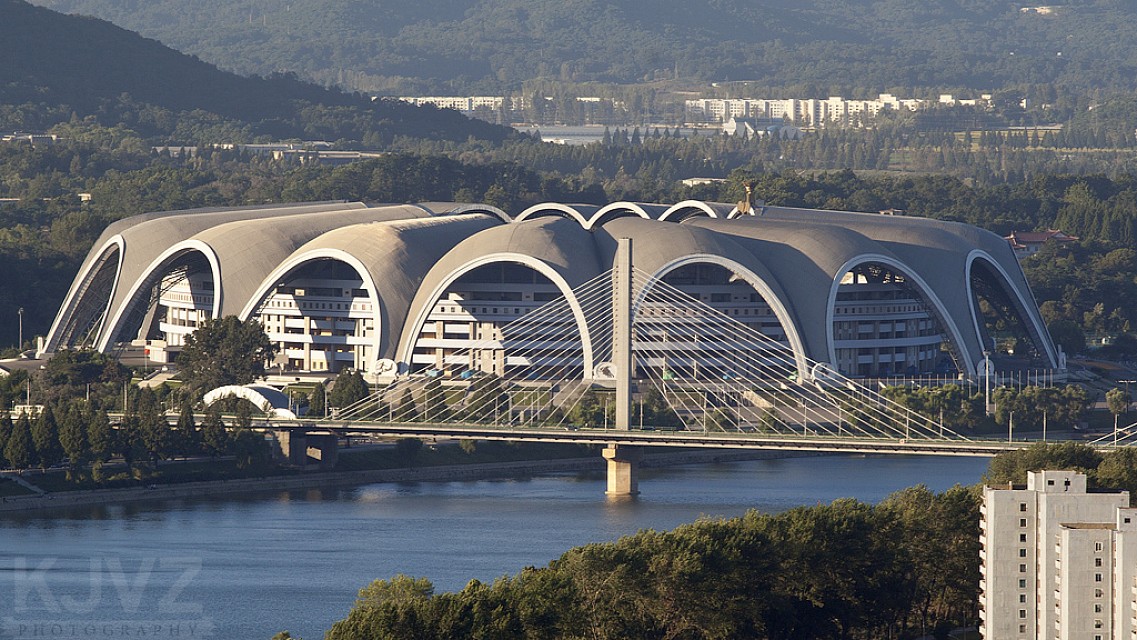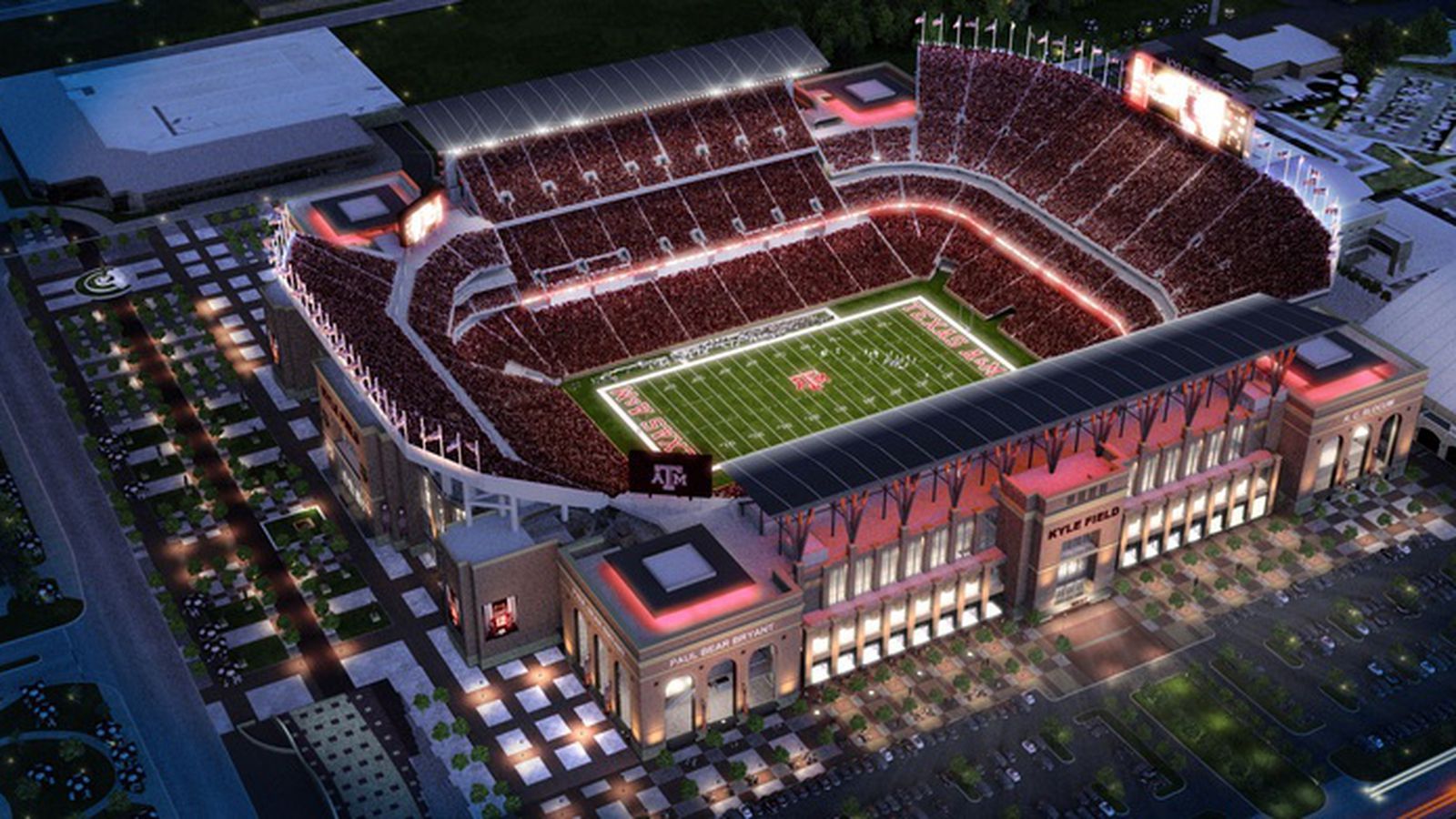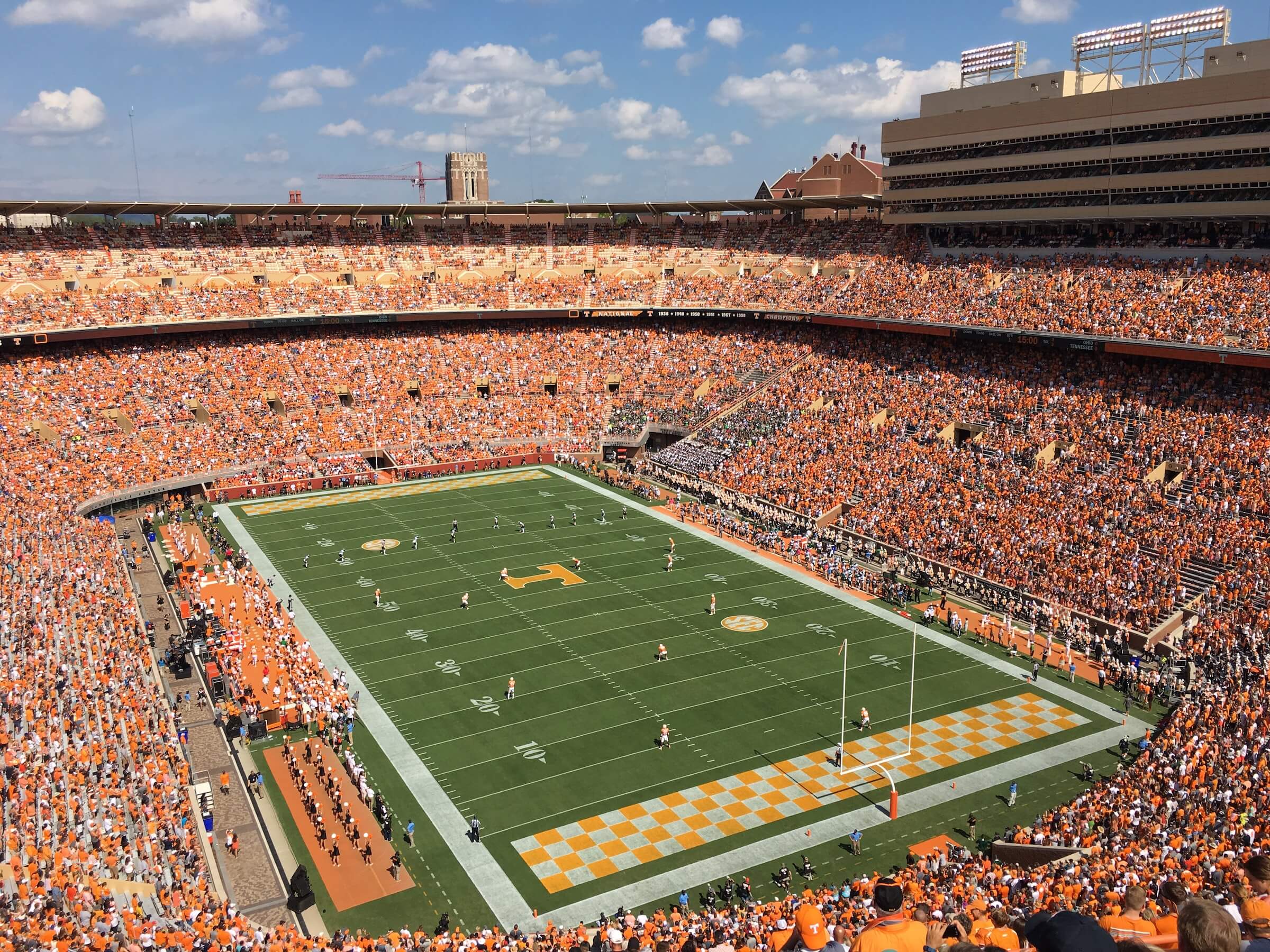8 largest stadiums in the world – Countries with the Largest stadiums
Table of Contents
North Korea – Rungrado 1st Of May Stadium
The Rungrado 1st of May Stadium, also known as the May Day Stadium, is a versatile sports facility on Rungra Island, Pyongyang, North Korea. It was inaugurated on May 1, 1989. What sets this stadium apart is its remarkable roof design.

The roof, which envelops the entire structure, is adorned with 16 arches, giving it the appearance of a massive magnolia when viewed from above. This architectural feature adds to the stadium’s overall magnificence, perfectly capturing the grandeur and splendour of this extraordinary sports venue.
India – Motera Stadium
The Motera Stadium, previously named Narendra Modi Stadium, is a cricket venue in the Sardar Vallabhbhai Patel Sports Complex in Ahmedabad, Gujarat, India. Originally built in 1983, the stadium underwent renovations in 2006 and was completely reconstructed in 2015.

In a historic event, the stadium recently broke the world record for the highest attendance in a limited-overs cricket match, with an astounding 104,859 fans attending the 2022 Indian Premier League.
With a seating capacity of 132,000 spectators, the Motera Stadium is a massive facility that can accommodate many cricket enthusiasts. See Women’s World Cup 2023 – Place, Teams, Schedule, And The Battle Between USA and Netherlands, resulting in a 1-1 tie
United States – Michigan Stadium
The University of Michigan’s football stadium, known as “The Big House,” is in Ann Arbor, Michigan. It is the second-largest football stadium globally, with a seating capacity 107,601.

Constructed in 1927, the Michigan Stadium has undergone various updates and advancements to stay current with modern trends and technology. Notably, it holds the distinction of being the largest stadium in the United States and the Western Hemisphere.
United States – Beaver Stadium
Beaver Stadium, situated on Pennsylvania State University in Penn State University Park grounds, is an open-air stadium primarily utilized for college football. It was established in 1960 and served as the home field for Penn State’s football team, the Nittany Lions.

With a seating capacity exceeding 106,000 individuals, Beaver Stadium ranks as the second largest stadium in the United States, and its immense size is truly remarkable.
Over the years, the stadium has undergone six expansions, resulting in its current capacity of 106,572, positioning it as the country’s second-largest stadium and the world’s fourth-largest.
United States – Ohio Stadium
Ohio Stadium, found on the Ohio State University campus in Columbus, Ohio, is shaped like a horseshoe. It was initially opened in 1922 and underwent renovations in 2001.
Ohio Stadium has hosted prominent sports, music, and political figures throughout its history. Esteemed football players like Archie Griffin have competed in this venue. With a seating capacity of 102,780, Ohio Stadium ranks as the fifth-largest stadium globally.
United States – Kyle Field
Kyle Field, situated on the grounds of Texas A&M University in College Station, Texas, is an American football stadium.
Notable for its advanced amenities, including a large Jumbotron, Kyle Field offers luxurious suites, VIP lounges, and contemporary concessions areas reminiscent of top-tier hotels.

The stadium has been the home of the Texas A&M Aggies football team since 1904 and has been a permanent concrete stadium since 1927. It can accommodate up to 102,733 spectators.
United States – Tiger Stadium
Tiger Stadium, also referred to as Navin Field and Briggs Stadium, was a versatile stadium in the Corktown area of Detroit. On days when football games took place, Tiger Stadium transformed into the fifth largest city in Louisiana, with a staggering 102,321 passionate fans filling the stadium to witness the Tigers play.

This iconic venue held a special place in the hearts of generations of Tiger fans. It earned the nickname “The Corner” due to its position at the intersection of Michigan and Trumbull Avenues.
United States – Neyland Stadium
Neyland Stadium, situated in Knoxville, Tennessee, USA, is a renowned sports arena. Its name pays tribute to Robert Neyland, a former head football coach at the University of Tennessee who had three coaching stints between 1926 and 1952.

Originally built in 1921 under the name Shields-Watkins Field, the stadium has since undergone 16 expansion projects. As a result, it now boasts an impressive seating capacity of 101,915.
Neyland Stadium proudly holds the title of the sixth-largest stadium in the United States, the eighth-largest stadium globally, and the second-largest stadium within the Southeastern Conference.







